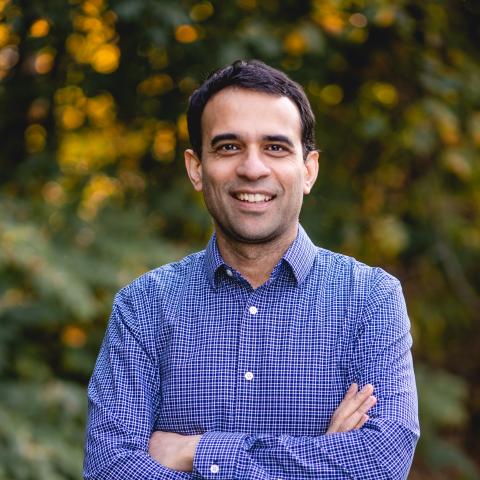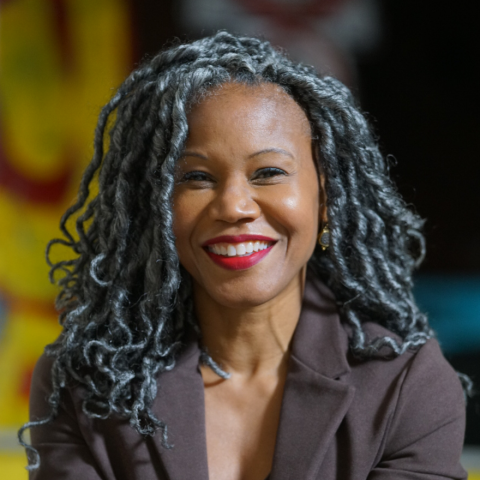
After a pandemic-fueled three-year hiatus, the TED Conference will once again gather doers and thinkers from around the globe to share their knowledge, showcase their research, and discuss topics relating to the human experience. Among the presenters this year are two of our faculty members who will be contributing their expertise to the New Era TED 2022 line-up.
Majora Carter is no stranger to the TED stage. Her 2006 presentation Greening the Ghetto detailed her solutions for environmental equality in the South Bronx and was one of the first talks to launch TED.com. This year Carter will discuss the work highlighted in her recently published book "Reclaiming Your Community," where she addresses the problem of persistent poverty in low-status communities.
The MacArthur Fellow, Peabody Award-winning broadcaster, and real estate developer argues that these communities need to use corporate talent retention strategies to resist gentrification, create economic stability, and increase community empowerment. Her words, written on the walls of the Smithsonian Museum of African-American History and Culture, "You don't have to move out of your neighborhood to live in a better one," exemplify her vision.
Carter brings her designing outside-the-box know-how to Princeton students in her course Creativity, Innovation, and Design. She challenges students to address societal problems using design thinking and human-centric methodologies.
Also invited to the TED stage this year is Manish Bhardwaj. A committed and successful social entrepreneur Bhardwaj discusses the essential need to find moral clarity to create a just and equitable world. He will discuss the language of right and wrong, the complexities of helping, and his ideas of empowerment through accompaniment -- there is no justice from a distance.
He will also address the need for educators to train students in moral clarity and the importance of equipping students with the tools they need to understand how injustice works and, most importantly, how it can be dismantled. "We don't leave it to families to train engineers, scientists, and humanists. So why do we believe that moral clarity is the sole responsibility of families or religion? If we want a just world, we should train our students in moral clarity, the nature of injustice, and the path to justice," said Bhardwaj.
Bhardwaj puts these ideas into practice in his course, Entrepreneurship for the Idealist, which centers on a counter-narrative of what it means to have a successful social venture. Students study the historical roots of injustice and learn how to start social ventures to make the world more just and equitable.

